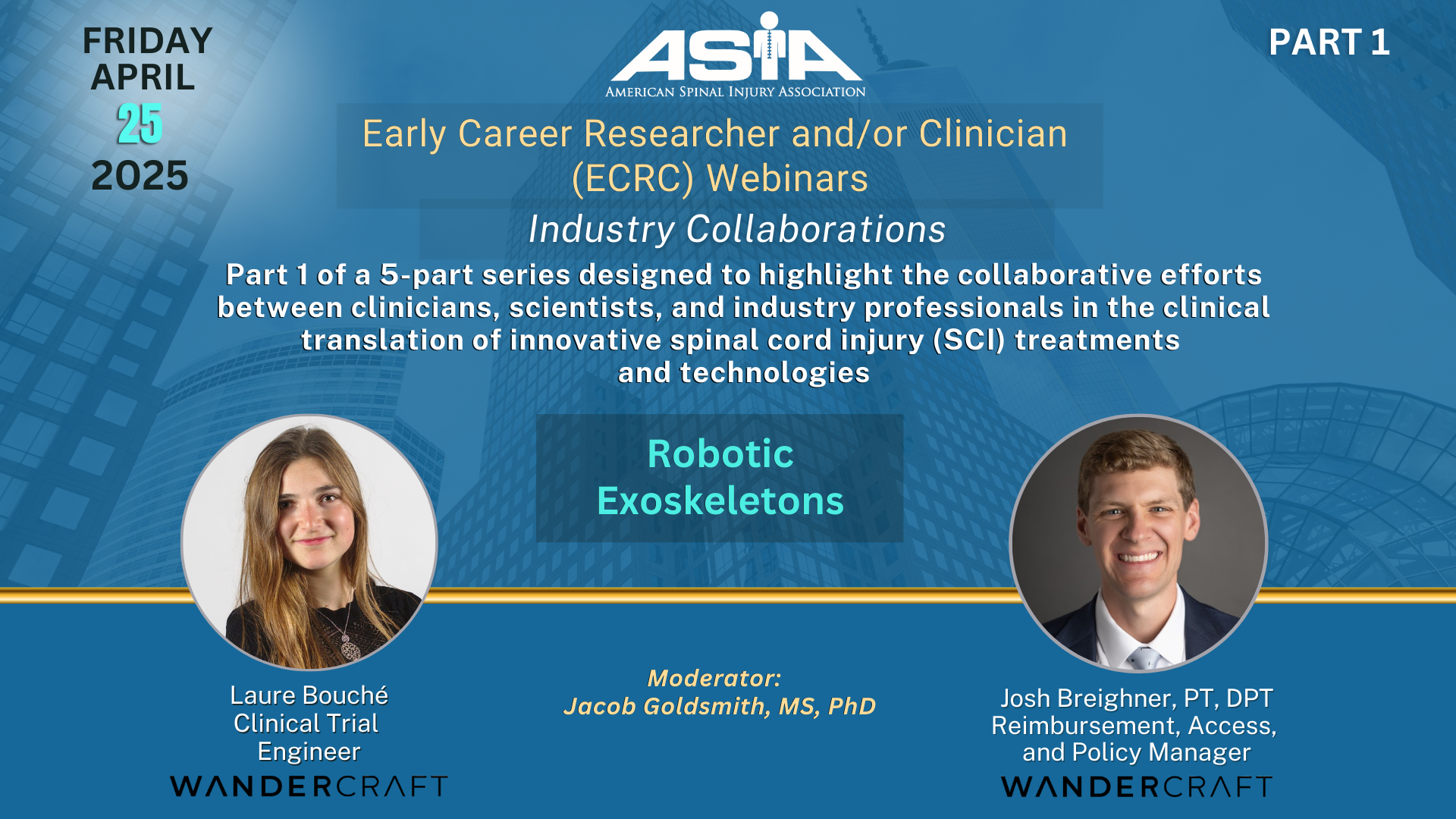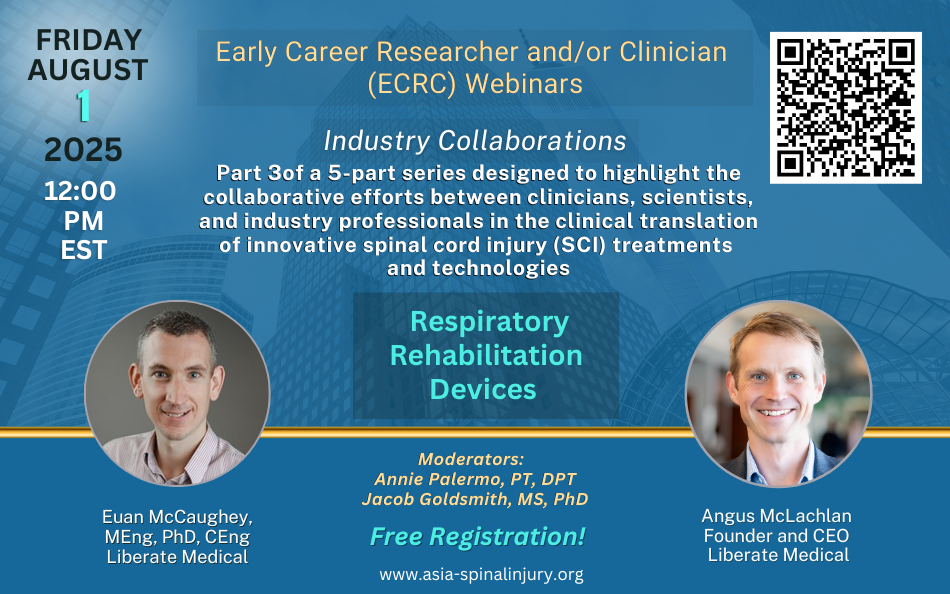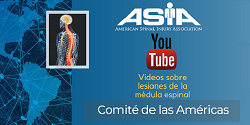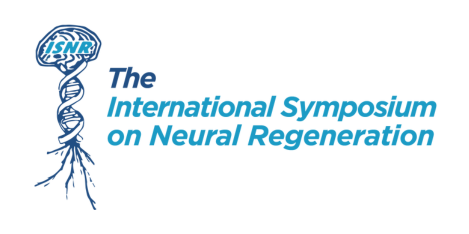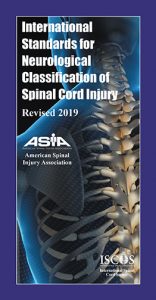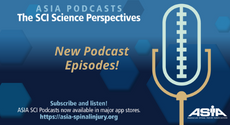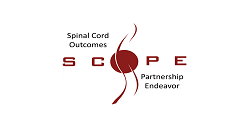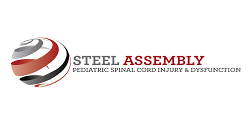NEW! 2025 ECRC Webinar Series on Industry Collaborations! Register Now for All Five Webinars!
This five-part webinar series is designed to highlight the collaborative efforts between clinicians, scientists, and industry professionals in the clinical translation of innovative spinal cord injury (SCI) treatments and technologies. This series aims to enhance and develop online educational resources that bridge the gap between industry, researchers, and clinicians, focusing on evidence-based practices and interdisciplinary collaboration.
The series will provide an in-depth overview of the opportunities for collaboration across sectors in the SCI field. Each session will focus on the clinical translation of cutting-edge devices and therapies, with an emphasis on how these interdisciplinary partnerships drive innovation in SCI treatment and rehabilitation.
ASIA ECRC 2025 Industry Collaborations Webinar Series Disclaimer
Part 1: Robotic Exoskeletons | April 25th, 2025
Explore the clinical translation of robotic exoskeletons, with a focus on collaboration between engineers, clinicians, and industry leaders. Presenters from Wandercraft discussed ongoing clinical trials, the pathway to market, and key considerations for payer access.
Part 2: Spinal Cord Stimulation | May 30th, 2025
In this session, Onward will highlight the collaboration between scientists and clinicians in the development of non-invasive spinal cord stimulation devices. Presenters will share insights from early trials and lessons learned as they navigate the clinical translation process.
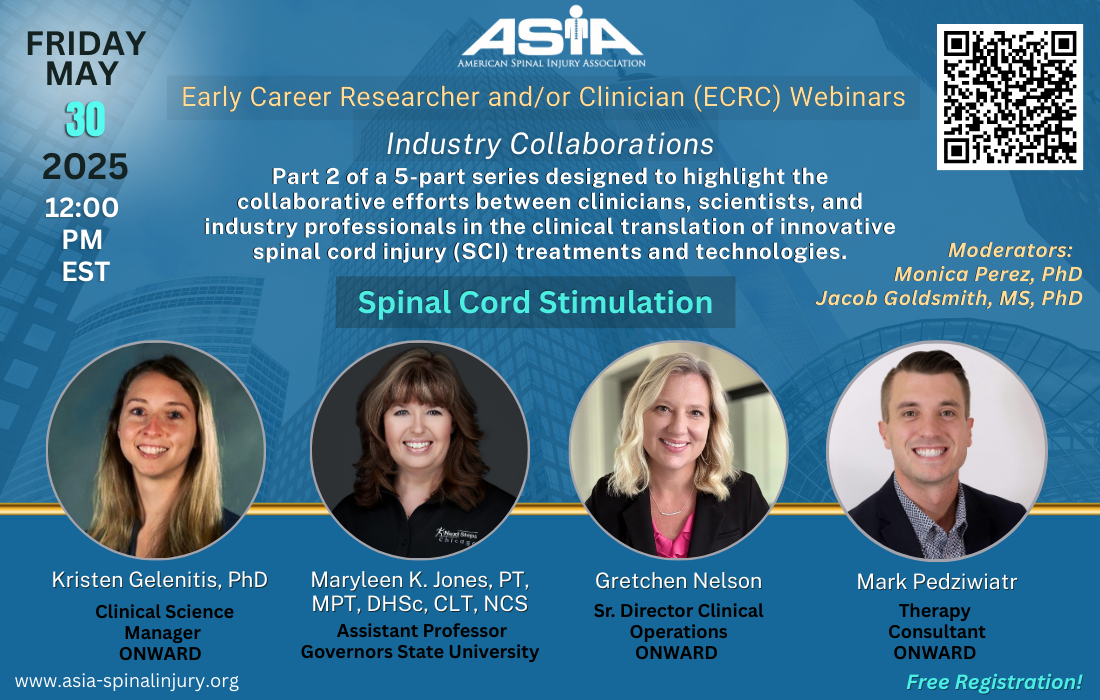
Presenters:
Kristen Gelenitis
Kristen received her PhD in Biomedical Engineering from Case Western Reserve University in Cleveland OH, where her research focused on implanted neural stimulation systems and their use for improving exercise outcomes following spinal cord injury. In her current role as Clinical Science Manager at ONWARD Medical, Kristen uses her engineering and research background to support the strategic design and analysis of clinical trials involving novel neurotechnologies – namely ONWARD’s ARC-EX and ARC-IM spinal cord stimulation systems. Her work involves close collaboration with thought-leaders in academic and rehabilitation settings to gather scientific input and ensure their expertise guides translation of ONWARD’s technologies
Maryleen “Mary”K. Jones
Maryleen is an Assistant Professor at Governors State University, where she teaches Neuroscience Therapeutics and Integrated Research coursework. Mary, additionally, serves as the clinical director at Next Steps Chicago of the O’Connor Foundation in Willow Springs, IL. Mary is a Board Certified Neurologic Specialist with 20+ years of practice. Mary received her Master of Physical Therapy Degree from Governors State University and her Doctor of Health Science degree from the University of Indianapolis. Mary’s line of research inquiry involves the clinical application of transcutaneous spinal cord stimulation, accessibility facilitators and barriers for persons with disabilities, and application of the movement systems approach in physical therapy curricula and practice. Mary is a member of the American Physical Therapy Association, a member of the Academy of Neurologic Physical Therapy, and the Academy of Pediatric Physical Therapy, where she serves on the Movement Systems Approach Application Task Force. Additionally, Mary serves on the Board of Directors for the Illinois Physical Therapy Foundation, where her work involves advocacy for engagement and facilitation of the implementation of evidence-based practice and student-to-student scholarship. Mary is also a member of the American Congress of Rehabilitation Medicine and is a member of the Spinal Cord Injury and Stroke special interest groups.
Gretchen Nelson
Gretchen holds a Bachelor of Applied Science degree in Neurobiology, Physiology, and Behavior from the University of California, Davis. With a 23-year career spanning both research and sales roles in major healthcare companies, she brings a wealth of experience to the field. Currently serving as the Senior Director of Clinical Operations at ONWARD Medical, Gretchen leads the development and execution of clinical study programs. In this role, she plays a pivotal part in generating clinical evidence to support the efficacy and safety of ONWARD Medical’s innovative technologies.
Mark Pedziwiatr
Mark earned his Master’s degree in Occupational Therapy from Midwestern University, where he conducted research on rehabilitation technology. As an occupational therapist, he brings experience across the continuum of care, including outpatient, inpatient, and acute-care settings. In his current role as a Therapy Consultant with ONWARD Medical, Mark leverages his clinical experience to support the integration and training of therapists in the use of ARC-EX within spinal cord injury (SCI) rehabilitation clinics across the Upper Midwest.
Part 3: Respiratory Rehabilitation Devices | August 1st, 2025
Focusing on Liberate Medical, this session will delve into the collaborative efforts to improve pulmonary care for SCI patients. Presenters will discuss their non-invasive VentFree Muscle Stimulator, designed to prevent muscle atrophy and reduce ventilator dependency in adults requiring mechanical ventilation.
Presenters:
Euan McCaughey
Euan McCaughey (MEng, PhD, CEng) completed his PhD at the University of Glasgow in 2014, focusing on the use of Abdominal Functional Electrical Stimulation (Abdominal FES) to improve respiratory function after spinal cord injury. He subsequently worked at the University of Strathclyde, Glasgow, and Macquarie University, Sydney, before joining Neuroscience Research Australia in 2017. Euan developed his own lab in Sydney before returning to Glasgow where he now serves as the A/Director of Research for the Queen Elizabeth National Spinal Injuries Unit.
Euan’s interest lie in undertaking clinical trials to prove the effectiveness of protocols or technologies designed to improve outcomes for those living with an illness or disability. He has a particular interest in the use of Abdominal Functional Electrical Stimulation (Abdominal FES) to improve respiratory and bowel function, especially for people living with a spinal cord injury. This technology has now been commercialised by Liberate Medical, with Euan working as a consultant for this company. His expertise in the area of spinal cord injury has seen him appointed to the Editorial Board of Spinal Cord, the leading dedicated spinal cord injuries journal.
Angus McLachlan
Dr. McLachlan co-founded Liberate Medical and has served as a member of its board of directors and its Chief Executive Officer since 2013. From 2014 to 2016, he also served as the Director for Device Integration and Strategy for Revon Systems. Dr. McLachlan completed his doctoral research on Liberate Medical’s proprietary electrical muscle stimulation technology and was responsible for the initial product development of VentFree and SecondBreath, which led to the technology being spun out of Apellis Pharmaceuticals. He is co-inventor on all of Liberate Medical’s patents and has authored several important publications in the field of abdominal functional electrical stimulation. Dr. McLachlan received his M.Eng. in Mechanical Engineering and his Ph.D. in Biomedical Engineering from the University of Glasgow, Scotland.
Part 4: Gene and Cell Therapies | October 3rd, 2025
This session will explore the clinical translation of gene and cell therapies. Presenters from Inteligex, Aspen Neuroscience, and the Mayo Clinic Center for Regenerative Biotherapeutics will discuss the critical role of collaboration between clinical and scientific teams in developing therapies like autologous neuron replacement and regenerative stem cell treatments for SCI.
Part 5: Pharma | December 5th, 2025
In the final session, NervGen Pharma Corp. will present its work on nervous system repair, focusing on the collaboration between clinicians, scientists, and industry leaders in the development of therapies for SCI. Presenters will share their experiences in navigating the clinical translation process, including insights from ongoing trials.
ECRC INDUSTRY COLLABORATIONS WEBINAR SERIES DISCLAIMER:
The American Spinal Injury Association (“ASIA”) has made this webinar available to provide information to the spinal cord injury community in accordance with its mission. Reference in this webinar to any product or service does not constitute or imply an ASIA endorsement or recommendation of any company or such product or service. While ASIA has made every effort to include accurate information in the webinar, ASIA has not investigated or tested any of the products or services mentioned in the webinar, and it does not guarantee the accuracy, completeness, efficacy, or timeliness of such information, products, or services. ASIA is not responsible for, and expressly disclaims all liability for, any damage, injury or other loss of any kind arising out of use of or reliance on such information, products, or services, or any defect in or failure of any product or service or any misrepresentation or omission made in connection with such product or service. No guarantees or warranties, including (but not limited to) any express or implied warranties of merchantability or fitness for a particular use or purpose, are made by ASIA.
